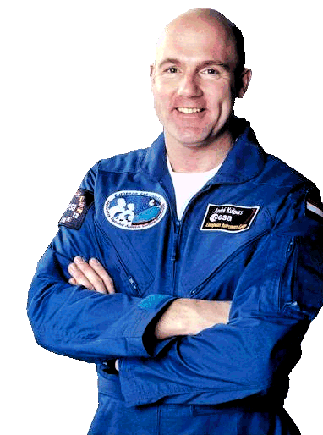
|
SEEDS
|

|
Abstract: The main purpose of this educational experiment is to give children / pupils in the target age group 10 - 14 a hands-on experience on doing science on board the international space station, ISS. The main goals are to learn youngsters that science is (can be) fun and what the impact of gravity and light is on the growth direction during plant germination.
Address corresponding
author:
Jack
van Loon, DESC-VU Amsterdam, the Netherlands and Koen Weterings,
Lab. Plant Cell Biology, Radboud University Nijmegen, NL.
Others contributing and involved in this project:
Jasper Wamsteker(SRON), Niek de Kort
(de Spil), Ton van Veen (Plato PC), Leen van den Oever and Tycho Malmberg (NIBI),
Michael v.d. Meer (NWO), Gerbrand van Melle (<G>). There also were contributions
from Luc v.d. Bergh (Dutch Space), Louise Fredriksz, Rogier Schonenborg and
many others.
Introduction: The basic
idea for SEEDS is that the same experiment that is performed by the ESA / Dutch
astronaut André Kuipers on board the international space station, ISS, is done
on ground by children and pupils in schools. During the mission André will initiate
seed germination by watering them, and place them in a proper location in the
ISS to grow. For the SEEDS experiment we use rocket lettuce (Rucola, Eruca sative)
as a fast growing plant model.
In the folding rocket model there is a dark and light grow chamber so we can
see the impact of both gravity and light (or the combination), both under one-g
on-ground and microgravity in-flight conditions. During the DELTA mission we
will have 67 thousand rockets within the Netherlands and an additional 6 thousand
in Germany. We will also have a number of participating schools in Curacao and
Russia.
After some 4 days in flight
André will open his rocket and report to the audience on ground how his seeds
have developed and grown. The children on ground will report on their results.
The two gravity conditions in combination with dark and light grown conditions
are discussed.
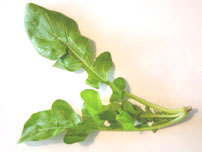 Rucola (Eruca sative) or rocket lettuce |
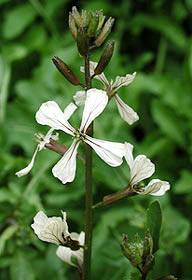 A blooming Rucula |
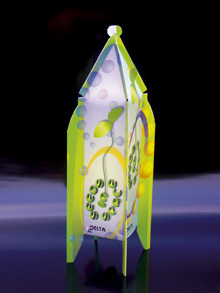 The Seeds-in-Space rocket (Photo: PlatoPC) |
Participate: When you are fortunate and obtained on of the Seeds packages you may also participate in the experiment. You can find the rocket construction info in this download pdf file. Please keep a close watch to what is happening during the mission so when you, together with André, can start the experiment. Within the Netharlands you may follow the experiment on national TV but you may also visit the ESA EUC - DELTA Mission Live Video site.
Ground based studies: Beside these experiment using the basic setup for 'Seeds' one could also choose to perform experiments using a 'microgravity simulator' the Random Positioning Machine (RPM), a rotating plant grow chamber or other more domestic machinery to play around with the gravity vector like a good old record player.
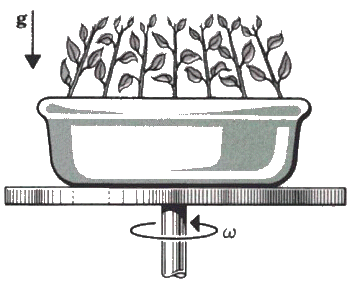 Plants on a rotating platform |
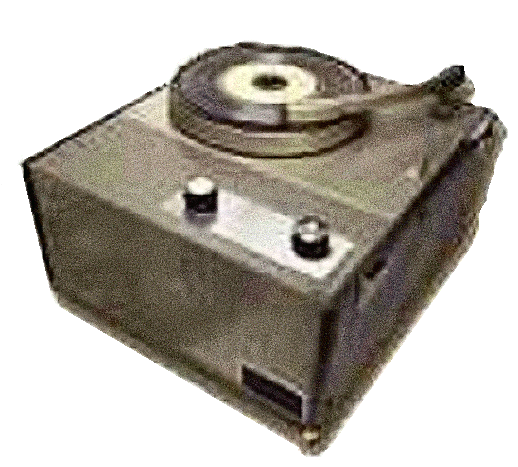 The 'domestic' version |
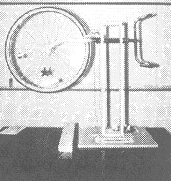 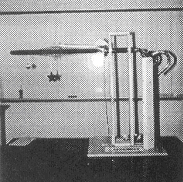 The 'domestic' version |
Besides these sub-projects the specially developed 'Seeds in Space' educational modules also address issues like the production of oxygen and absorption of CO2 by plants, how plants can be useful as a food source for long duration mission to Mars or for settlements on the Moon and many other issues. Seeds is a basic experiment that addresses some of the main parameters that determine plants growth direction. The issue is addressed in GraPhoBox university post graduate experiment, however, the setup for this experiment is much more advanced compared to seeds.
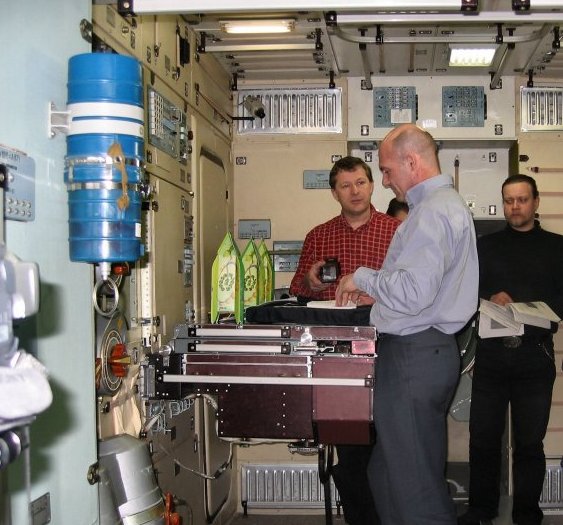 Seeds crew training with Andre Kuipers inside Zvezda / Star City (Photo: DESC/J.van Loon) |
Seeds components in the Zvezda (ISS-Service Module) mock up in Star City / Moscow (Photo: DESC/J.van Loon) |
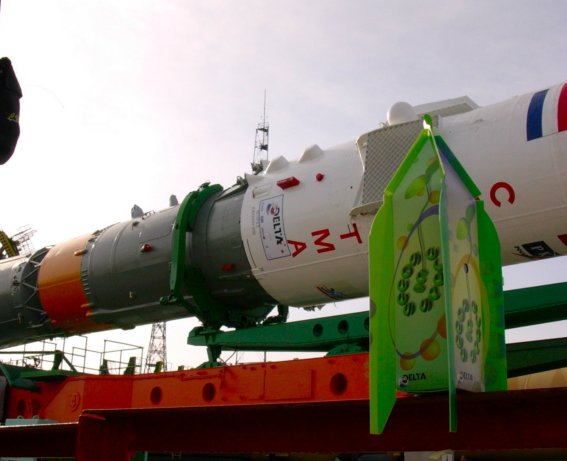 The SEEDS rocket during the Soyuz rocket roll out at the launch site in Baikonur / Kazagstan (Photo: DESC/J.van Loon) |
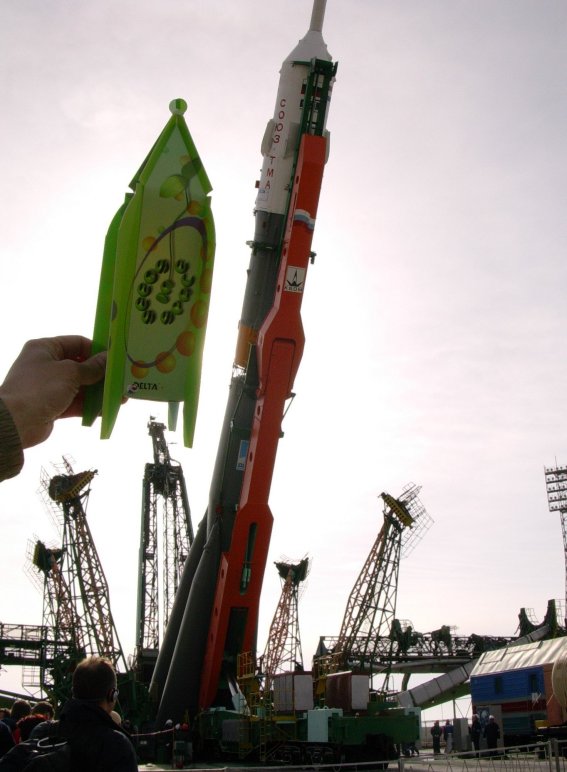 The SEEDS rocket during the early morning Soyuz rocket erection a day before launch (Photo: DESC/J.van Loon) |
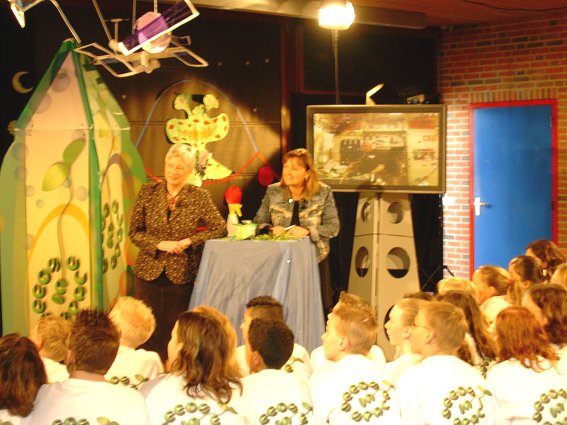 The Dutch minister for Education, Culture and Science, Maria van der Hoeven, during the start of the SEEDS experiment at the Klaverwijde school in Noordwijk, NL (Photo: DESC/J.van Loon) |
If you want to know more on the Seeds in Space experiment you may go to the web site www.seedsinspace.nl : click 'Info' and choose the UK flag.
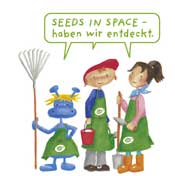 |
For the German version of SEEDS you may visit the site from the German Aerospace Center, DLR. |
When you are interested in other educational materials go to the education pages on this site.
! ! Have fun ! !